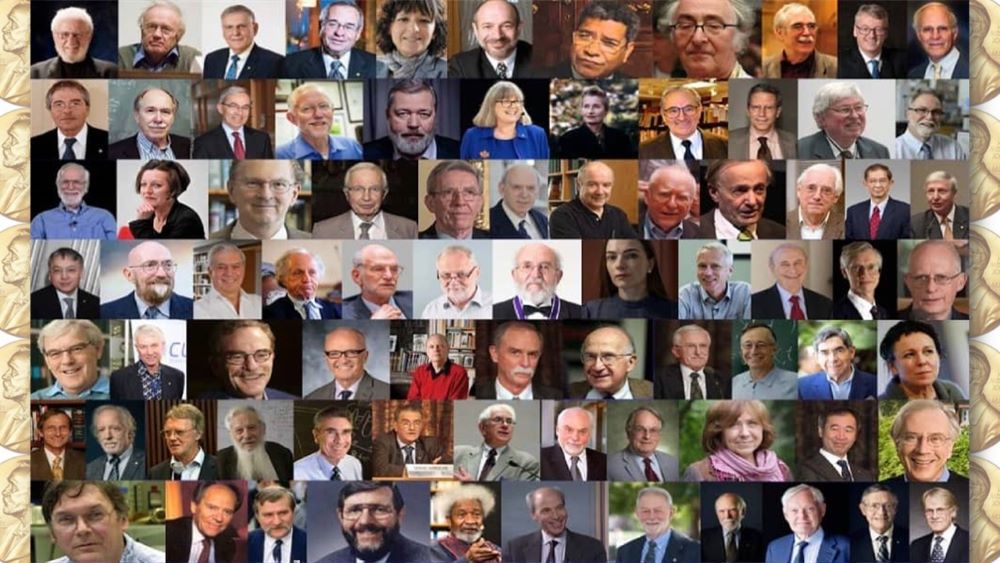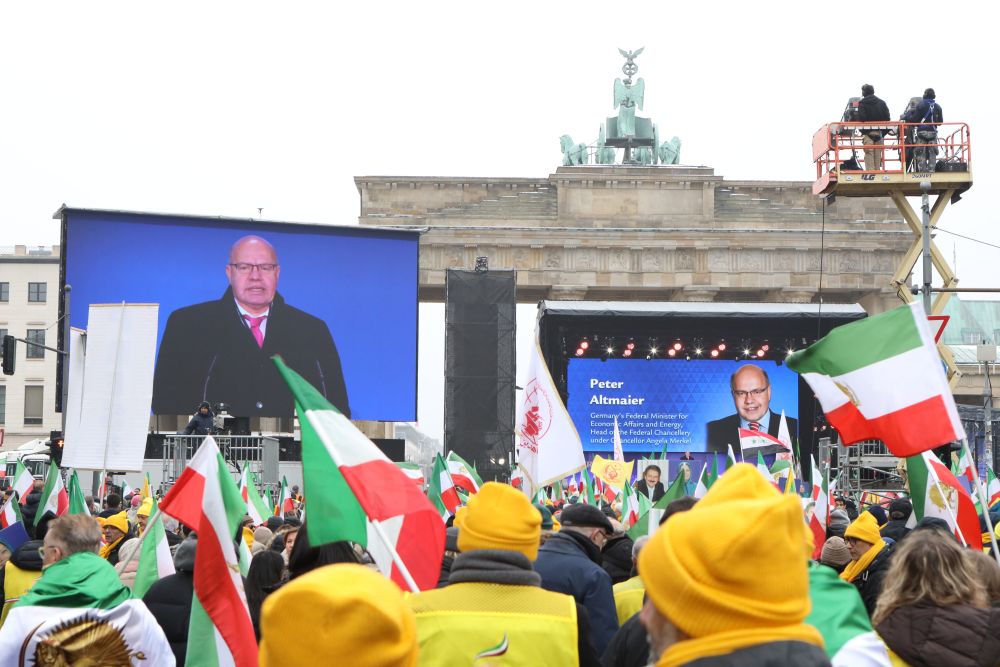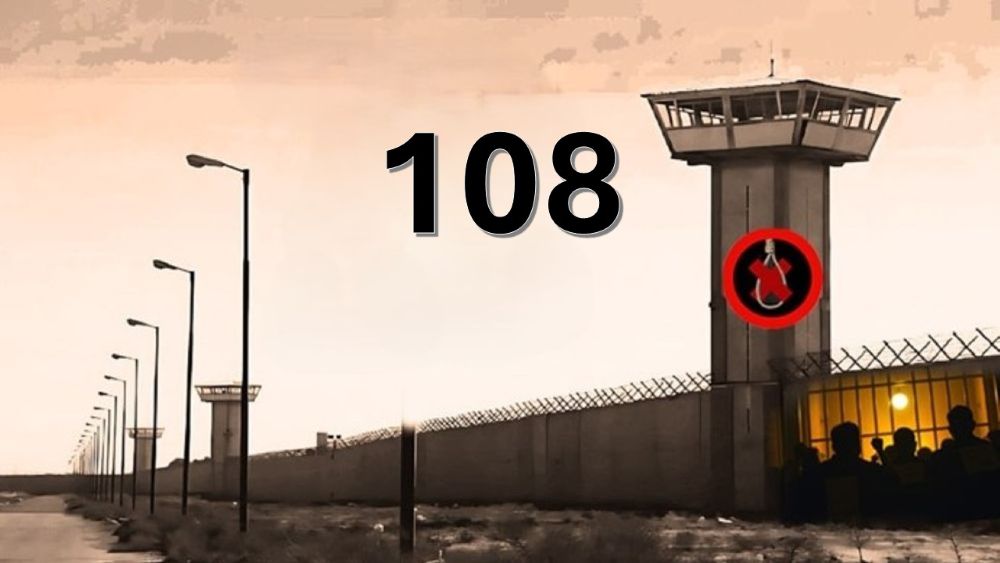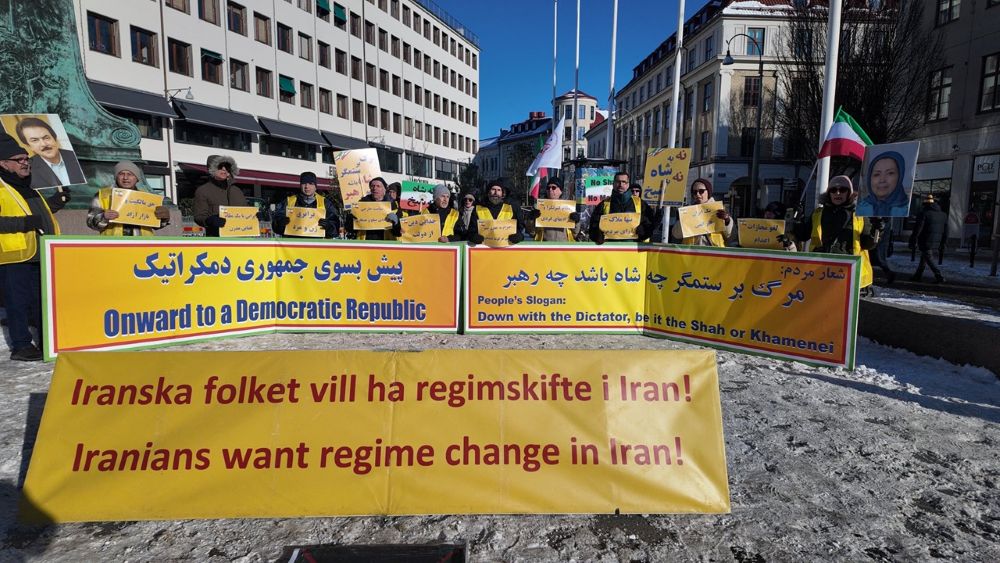
In an unprecedented display of unity, 80 Nobel Laureates have sent a joint letter to world leaders, including U.S. President Joe Biden, UN Secretary-General Antonio Guterres, President of the European Council Charles Michel, UK Prime Minister Rishi Sunak, and Canadian Prime Minister Justin Trudeau. The letter, also addressed to leaders of the 27 EU member states, expresses deep concern over the worsening human rights situation in Iran and urges immediate action to support the Iranian people’s pursuit of democracy.
The Nobel Laureates condemn the Iranian regime’s brutal suppression of its citizens, including ethnic and religious minorities, and its alarming status as the world’s leading per capita executioner, with at least 864 executions in 2023. They stress that during the 2022 uprising, the Iranian people clearly rejected all forms of dictatorship, demanding instead a democratic republic.
The letter points out that the Iranian regime is causing regional instability and exporting terrorism through its proxies, especially since the attacks on October 7, 2023. This, the Laureates argue, is a tactic to distract from the regime’s internal crackdown on dissent and democracy activists.
Additionally, the Laureates highlight the support of hundreds of esteemed U.S. professors who have written to President Biden, stressing the need for the world to recognize the Iranian people’s right to defend themselves against the IRGC and to establish a democratic, secular republic. This sentiment is echoed by American Nobel Laureates, Templeton Laureates, and members of the National Academies of Sciences, Engineering, and Medicine.
In their letter, the Nobel Laureates align with over 4,000 parliamentarians from 41 countries and 125 former world leaders who support Mrs. Rajavi’s Ten-Point Plan for Iran’s future. This plan advocates for universal voting rights, free elections, a market economy, the separation of religion and state, gender, religious, and ethnic equality, a peaceful foreign policy, and a non-nuclear Iran.
The letter strongly condemns the Iranian regime’s human rights abuses, its destabilizing actions in the Middle East, and its aggressive policies. The Laureates call on the global community to designate the Iranian Revolutionary Guards Corps (IRGC) as a terrorist organization, citing the IRGC’s role in internal repression and external violence.
The Nobel Laureates affirm the inherent right of the Iranian people, especially the youth, to strive for democracy and freedom, insisting that this fundamental right must be unequivocally supported by the international community.
Joint Letter of the Nobel Laureates
To the World Leaders
April 20, 2024
To:
Joe Biden, President of the United States
Antonio Gutierrez, UN Secretary-General
Charles Michel, President of the European Council
Rishi Sunak, Prime Minister of the United Kingdom
Justin Trudeau, Prime Minister of Canada
Copies to:
Leaders of 27 member states of the European Union
Excellencies,
We, the undersigned Nobel laureates, express our deep concern over the appalling and deteriorating state of human rights in Iran. We are deeply concerned by the Iranian regime’s ruthless suppression of the people of Iran, including ethnic and religious minorities. Iran remains the world’s leading per capita executioner, killing at least 864 people in 2023.
During the 2022 uprising, the Iranian people rejected any form of dictatorship, whether monarchical or theocratic, and called for regime change to establish a democratic republic.
Unable to crush the protest movement for change, the Iranian regime is the driving force behind the war in the Middle East, particularly since the October 7, 2023, attacks. The regime now threatens world peace by destabilizing the region and exporting terrorism through its known proxies. This is an effort to divert attention from its systematic crackdown on dissent and democracy activists and to escape accountability.
On April 16, a significant bipartisan effort unfolded within the United States House of Representatives as House Resolution 1148 was introduced. Co-sponsored by 145 Representatives, this resolution stands as a firm condemnation of the Iranian regime’s multifaceted offenses, including acts of terrorism, fueling regional conflicts through proxy warfare, internal repression, and backing the Iranian Resistance, including the Ten-Point Plan advocated by Mrs. Maryam Rajavi, the President-elect of the National Council of Resistance of Iran.
Furthermore, hundreds of esteemed professors from across the United States have joined the growing chorus of international concern. Their letter to President Biden emphasizes that the world must acknowledge the right of the Iranian people to defend themselves against the terrorist IRGC and their rightful aspiration to establish a democratic, secular republic accountable to its people. This is a strategic necessity for the region and the world.” The signatories, comprising American Nobel laureates, Templeton Laureates, members of the National Academies of Sciences, Engineering, and Medicine, and recipients of numerous prestigious accolades, call on the United States to unequivocally stand in solidarity with the Iranian people.
We, the Nobel Laureates, join the international support for the democratic demands of the Iranian people, including over 4000 parliamentarians from 41 countries around the world and 125 former world leaders in 2023 to express support for the Ten-Point Plan for the Future of Iran of Mrs. Maryam Rajavi that calls for the universal right to vote, free elections, a market economy, and separation of religion and state, and advocates gender, religious, and ethnic equality, a foreign policy based on peaceful coexistence, peace in the Middle East, and a nonnuclear Republic of Iran.
We strongly condemn the Iranian regime’s ruthless suppression and violation of human rights of its own people, its destructive role in the Middle East, and its belligerent policies. Also, we join the global demand of blacklisting the Iranian Revolutionary Guards Corps (IRGC) as a terrorist entity by the free world states. The IRGC is the main source of brutality and suppression of the Iranian people and the export of violence to other parts of the world. We firmly maintain that the Iranian people, as well as the youth, possess an inherent right to ardently contend with the existing regime in order to establish the principles of democracy and freedom. This fundamental entitlement merits unequivocal acknowledgment.
Sincerely,
Signatories:
- Professor Pierre Agostini, Nobel Prize, Physics 2023, France
- Oscar Arias, (President of Costa Rica 2006-2010), Nobel Prize, Peace 1986, Costa Rica
- Professor Svetlana Alexievich, Nobel Prize, Literature 2015, Belarus
- Professor Harvey J Alter, Nobel Prize, Medicine 2020, USA
- Professor Robert Aumann, Nobel Prize, Economics 2005, USA-Israel
- Professor Barry C Barish, Nobel Prize, Physics 2017, USA
- Carlos Filipe Ximenes Belo, Nobel Prize, Peace 1996, East Timor
- Professor Georg Bednorz, Noble Prize, Physics 1987, Germany
- Professor Bruce Beutler, Nobel Prize, Medicine 2011, USA
- Professor J Michael Bishop, Nobel Prize, Medicine 1989, USA
- Professor Mario Capecchi, Nobel Prize, Medicine 2007, Italy-USA
- Professor Thomas Cech, Nobel Prize, Chemistry 1989, USA
- Professor Emmanuelle Charpentier, Nobel Prize, Chemistry 2020, Germany
- Professor Elias Corey, Nobel Prize, Chemistry 1990, USA
- Professor Johann Deisenhofer, Nobel Prize, Chemistry 1988, USA-Germany
- Professor Gerhard Ertl, Nobel Prize, Chemistry 2007, Germany
- Professor Jerome Friedman, Nobel Prize, Physics 1990, USA
- Professor Joachim Frank, Nobel Prize, Chemistry 2017, USA
- Professor Sheldon Glashow, Nobel Prize, Physics 1979, USA
- Professor David Gross, Nobel Prize, Physics 2004, USA
- Professor John Lewis Hall, Nobel Prize, Physics 2005, USA
- Professor Serge Haroche, Nobel Prize, Physics 2012, France
- Professor Oliver Hart, Nobel Prize, Economics 2016, USA
- Professor Alan Heeger, Nobel Prize, Chemistry 2000, USA
- Professor Richard Henderson, Nobel Prize, Chemistry 2017, UK
- Professor Roald Hoffmann, Nobel Prize, Chemistry 1981, USA
- Professor Jules Hoffmann, Nobel Prize, Medicine 2011, France
- Professor Gerardus ‘t Hooft, Nobel Prize, Physics 1999, the Netherlands
- Professor Tim Hunt, Nobel Prize, Medicine 2001, UK
- Sir Kazuo Ishiguro, Nobel Prize, Literature 2017, UK-Japan
- Elfriede Jelinek, Noble Prize, Literature 2004, Austria
- Professor Brian Josephson, Nobel Prize, Physics 1973, UK
- Professor Takaaki Kajita, Nobel Prize, Physics 2015, Japan
- Professor Brian Kobilka, Nobel Prize, Chemistry 2012, USA
- Professor Roger D. Kornberg, Nobel Prize, Chemistry 2006, USA
- Professor Finn Kydland, Nobel Prize, Economics 2004, Norway
- Professor Juan T. Lee, Nobel Prize, Chemistry 1986, USA-Taiwan
- Professor Robert Lefkowitz, Nobel Prize, Chemistry 2012, USA
- Professor Anthony Legett, Nobel Prize, Physics 2003, UK-USA
- Professor Jean-Marie Lehn, Nobel Prize, Chemistry 1987, France
- Professor Morio Vargas Llosa, Nobel Prize, Literature 2010, Peru
- Professor Eric Maskin, Nobel Prize, Economics 2007, USA
- Professor John C. Mather, Nobel Prize, Physics 2006, USA
- Oleksandra Matvichuk, Nobel Prize, Peace 2022, Ukraine
- Professor Michel Mayor, Nobel Prize, Physics 2019, Switzerland
- Professor David McMillan, Nobel Prize, Chemistry 2021, UK-USA
- Professor Hartmut Michel, Nobel Prize, Chemistry 1988, Germany
- Professor Paul Milgrom, Nobel Prize, Economics 2020, USA
- Professor Patrick Modiano, Nobel Prize, Literature 2014, France
- Professor Paul Modrich, Nobel Prize, Chemistry 2015, USA
- Professor William Moerner, Nobel Prize, Chemistry 2014, USA
- Herta Muller, Nobel Prize, Literature 2009, Germany
- Dmitry Muratov, Nobel Prize, Peace2021, Russia
- Professor William Phillips, Nobel Prize, Physics 1997, USA
- Professor Christopher Pissarides, Nobel Prize, Economics 2010, UK-Cyprus
- Professor John Polanyi, Nobel Prize, Chemistry 1986, Canada
- Professor Sir Peter Ratcliffe, Nobel Prize, Medicine 2019, UK
- Professor Charles Rice, Nobel Prize, Medicine 2020, USA
- Professor Sir Richard J. Roberts, Nobel Prize, Medicine 1993, UK-USA
- Professor Michael Rosbash, Nobel Prize, Medicine 2017, USA
- Professor Jean-Pierre Sauvage, Nobel Prize, Chemistry 2016, France
- Professor Randy Schekman, Nobel Prize, Medicine 2013, USA
- Professor Richard Schrock, Nobel Prize, Chemistry 2005, USA
- Professor Gregg Semenza, Nobel Prize, Medicine 2019, USA
- Professor Danny Shechtman, Nobel Prize, Chemistry 2011, Israel-USA
- Professor Vernon Smith, Nobel prize, Economics 2004, USA
- Professor John Walker, Nobel Prize, Chemistry 1977, UK
- Professor Wole Soyinka, Nobel Prize, Literature 1986, Nigeria
- Professor Sir James Fraser Stoddart, Nobel Prize, Chemistry 2016, UK
- Professor Donna Strickland, Nobel Prize, Physics 2018, Canada
- Professor Jack Szostak, Nobel Prize, Medicine 2009, USA
- Professor Kip Thorne, Nobel Prize, Physics 2017, USA
- Professor Olga Tokarczuk, Nobel Prize, Literature 2018, Poland
- Lech Walesa, Nobel Prize, Peace 1983, Poland, President of Poland 1990-1995
- Professor Arieh Warshel, Nobel Prize, Chemistry 2013, Israel-USA
- Professor Stanley Whittingham, Nobel Prize, Chemistry 2019, USA
- Professor Eric Wieschaus, Nobel Prize, Medicine 1995, USA
- Professor Torsten Wiesel, Nobel Prize, Medicine 1981, Sweden
- Professor David J. Wineland, Nobel Prize, Physics 2012, USA
- Professor Robert Wilson, Nobel Prize, Physics 1978, USA




